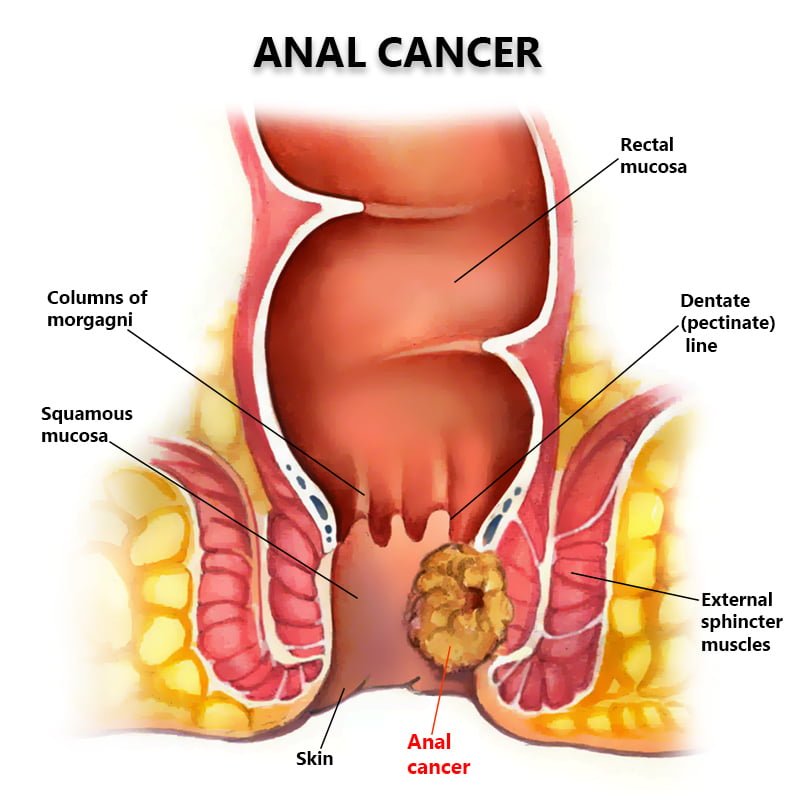Your “anal health” probably doesn’t come up in most routine doctor visits, but many people are at an increased risk for anal cancer. This includes men who have sex with men, women who have had precancerous changes found on routine pap screening, and individuals who are HIV positive. Any and all symptoms should be diagnosed by your gastroenterologist for an accurate diagnosis and treatment plan and an effective screening plan to be devised.

Over the past three decades, the incidence of anal cancer in the U.S. has doubled, and there are about 7,000 cases of anal cancer in the U.S. every year. Unlike colon and rectal cancer, most anal cancer is caused by a handful of strains of the Human Papilloma Virus, or HPV, that has hundreds of different subtypes and also causes cervical cancer in women. The most common symptom of colon cancer is anal or rectal bleeding. Most cases of colon cancer come from polyps in your colon. Finding polyps through a colonoscopy and removing them reduces your cancer risk. Anal cancer is less common but also curable when diagnosed early. Any and all symptoms should be diagnosed by your local NYC gastroenterologist for an accurate diagnosis and treatment plan.
Among the 1.2 million people in the U.S. infected with HIV, about half of men and a fifth of women have HPV-related changes in the cells of the anus—some of which may take years to develop into anal cancer.
While the New York State Department of Health recommends a baseline annual anal cancer screening for many HIV-infected men and women, there are no national screening guidelines. The availability of screening also differs throughout the country—our practice is one of the few that offers screenings in New York City.
So what can you do if you feel you’re at risk?
Get passed your embarrassment and have a doctor perform an anal Pap smear and a complete history and physical exam with your gastroenterologist!
The incidence of cervical cancer has diminished significantly due to the advent of Pap smears, and since HPV affects the anus in the same way it affects the cervix, any person who is at an increased risk for developing anal cancer should have this simple test done. It only takes a minute and involves your doctor inserting and brushing a small swab into the anal canal. This is in conjunction with the usual physical exam and consultation that you should be accustomed to as part of your evaluation.
The sample is then sent to a laboratory to check for the virus subtypes that cause anal warts, as well as checking for any changes in the cells that make up the lining of the anus. If abnormal cells are present or high risk HPV is present, a high resolution anoscopy (HRA) is warranted. HRA is a procedure that allows doctors to closely inspect the affected tissue in the anal canal. Any abnormal appearing tissues are biopsied and sent to the pathology lab to look for signs or pre-malignant cells or cancer cells which will require further treatment.
If you feel you are at risk for anal cancer or unsure, please call our office to schedule an anal pap smear so you can be evaluated. Our doctors will be happy to discuss this with you.
For more information about the gastroenterological services offered at Manhattan based New York Gastroenterology, or to schedule a consultation with our GI doctors. please call our offices.
